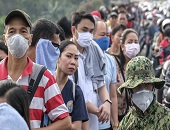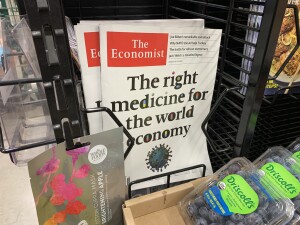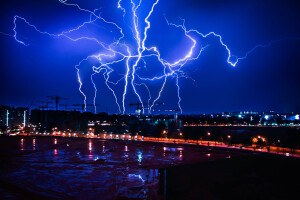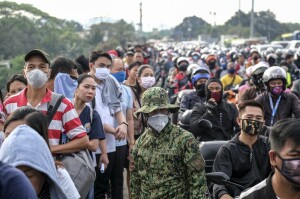How are different parts of the world reacting to the Covid-19 Pandemic, and how does that affect those who must analyze and report on global geopolitical risk?
Much depends on having a strong and trusted network of contacts, was the consensus of the panel convened by the magazine The Economist, which presented a webinar on May 28, 2020, titled “Inside Story: Reporting on the Covid-19 Pandemic Around the World.”
Helen Joyce, executive editor for events at The Economist, interviewed two outstanding foreign correspondents, from vastly different parts of the world. She also ran a Q & A session with an audience of thousands via the Zoom platform, a meeting app that has seen skyrocketing usage throughout the pandemic. Besides touching on geopolitical issues, Joyce asked about loneliness, future travel plans, and personal resolutions.
The talk even veered toward “covid news fatigue” and the “jolly boxes” – the lighthearted columns on things like baking bread and entertaining the kids. The hour truly felt like the “inside story” at The Economist.
The first panellist was Miranda Johnson, foreign correspondent for Southeast Asia, who spoke from her place in Singapore while lightning from a storm occasionally flared on-screen. “Initially Singapore was praised for its gold-standard response,” she said, “but in March the second wave hit.” Their Covid restrictions will not be eased up until June 2, 2020. “There’s pressure to ease up sooner.”
Southeast Asia, Johnson reminded the audience, consists of five countries with “massive differences.” At the end of February, “turmoil” in Malaysia had led to a new ruling coalition.
Governments are trying to control the news propagation more, it seems. For example, in Thailand, they recently enacted legislation to come down hard on fake news, “but that could also be a cover for controlling critics,” she said. The pandemic has accelerated this trend.
The distribution of expenditures for universities and other publicly funded research institutes is changing. A new “fiscal fragility” due to the heavy costs of fighting the pandemic means research monies may be drying up in the near future.
Sometimes the Southeast Asia news desk tries to take a break from reporting on Covid stories, “but it’s hard to do because the pandemic touches everything, even the War on Drugs that’s happening in the Philippines,” she said.
Covid will have far-reaching changes, Johnson said. The pandemic is “sowing the seeds of change for political upheaval.” In Thailand, the populace is fed up with oppression.
Singapore faces issues with its migrant workers. It is heavily dependent on such workers, especially in the sectors of construction and manufacturing. Over 300,000 people live in conditions where they are housed in dormitories, sleeping 12 to 20 persons to a room. These are “hotbeds of infection.” She said that Singaporeans “will expect to see a high-level wonkish policy response” to these issues.
Once the pandemic abates, Johnson said she expects there will be “travel corridors” between a few select nations. She recalled the days when she reported on coral reefs in remote parts of the Philippines. She would like to get back to reporting on the ongoing terrorism threats in the Philippines. “ISIS-backed security concerns are lacking attention.” Also, she “can’t wait to get out” and see things like the improved infrastructure in Manila.
On a personal level, she said the pandemic had taught her the important of checking in with people and contacts regularly. In future she plans to have a “more consistent engagement.” ♠️
The image of the Economist magazine is by DonSpencer1 – Own work, CC BY-SA 4.0
The image of lightning in Singapore is from StraitsTimes.com
The image of Covid in the Philippines is from Bloomberg.com




